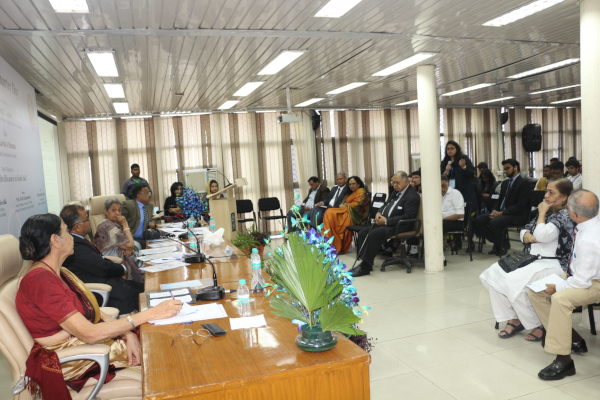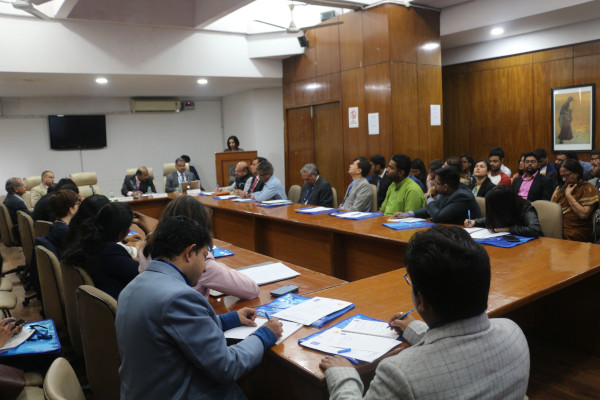FLS
Faculty of Legal Studies

Faculty of Legal Studies (FLS)
Vision
The study of law at South Asian University aims at an analytical understanding of the subjects, systems, theories and institutions in this field. Towards this end, the Faculty of Legal Studies has introduced the LL.M Programme with an emphasis on international law. It is widely known that international law has become the common language of relations between states and other subjects. Keeping this in view, the Programme is sensitive to the perspective of South Asian countries. It is believed that the countries of the South Asian region would be able to explore new areas of cooperation if the study of their common legal problems is pursued with greater commitment. To be able to build a strong foundation for future research abilities of students in the region, the Faculty focuses on some important areas of international law as part of the LL.M course structure.


Among the courses offered by the Faculty are: General Principles of International Law, International Trade Law, Law of International Organisations, International Human Rights Law, International Humanitarian, International Criminal Law, Law of the Sea, Private International Law, Intellectual Property Law, and Legal Theory and Jurisprudence. The Faculty equally emphasises on developing an interdisciplinary approach to the study of law in general and international law in particular. Further, the Faculty offers some innovative courses such as Comparative Constitutional Law of South Asian countries.
Apart from traditional pedagogic methods of teaching, the Faculty adopts seminar methods, wherein weekly legal discourses are organised. Eminent law scholars from India and abroad are invited to interact with faculty and students. The Faculty also organises discussions on contemporary legal problems, through joint seminars with other institutions. Further, the Faculty intends to engage the available human resources in the region and other parts of the world to contribute towards establishing centres of excellence in the field of international law and other important fields of law.
